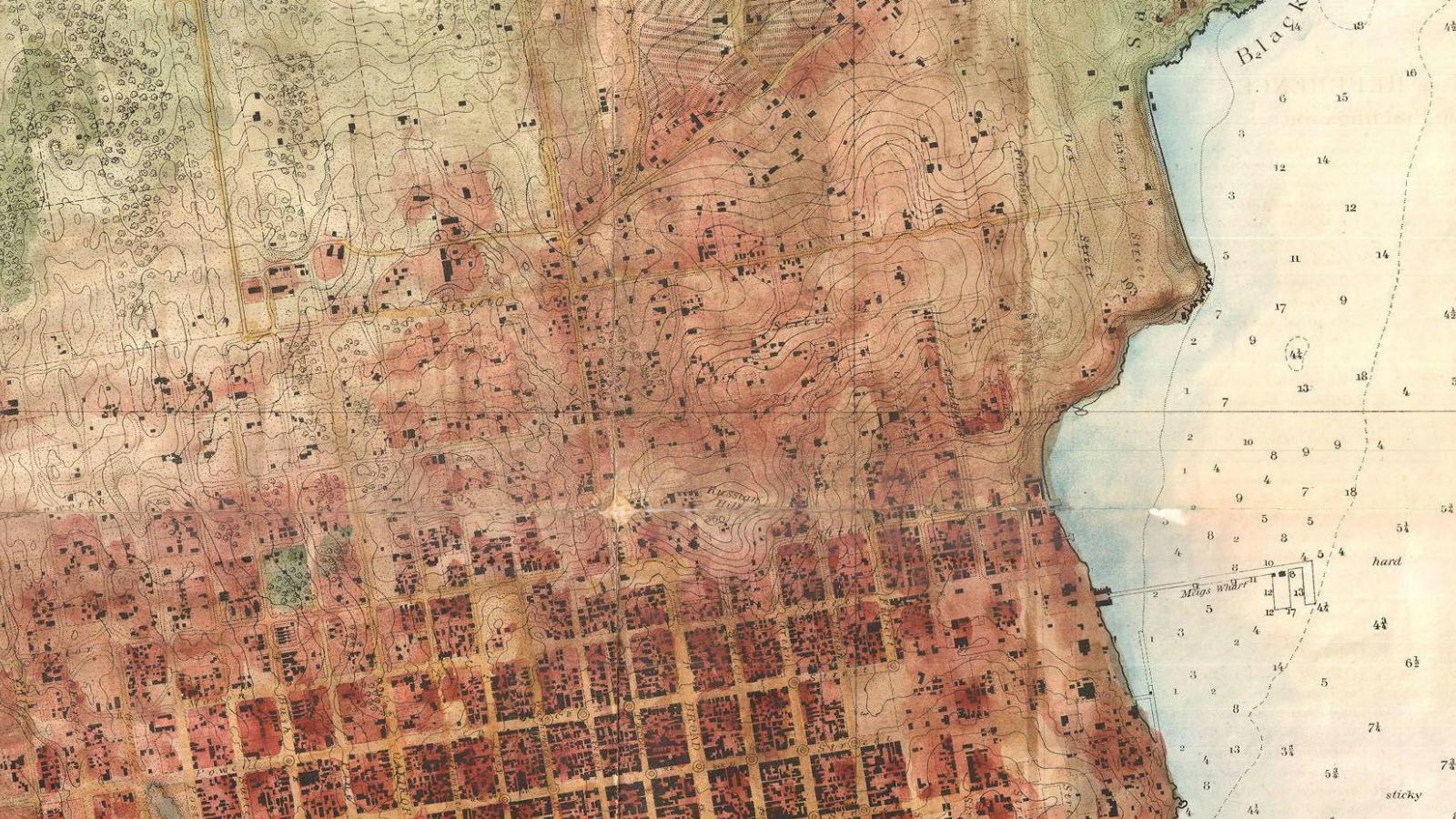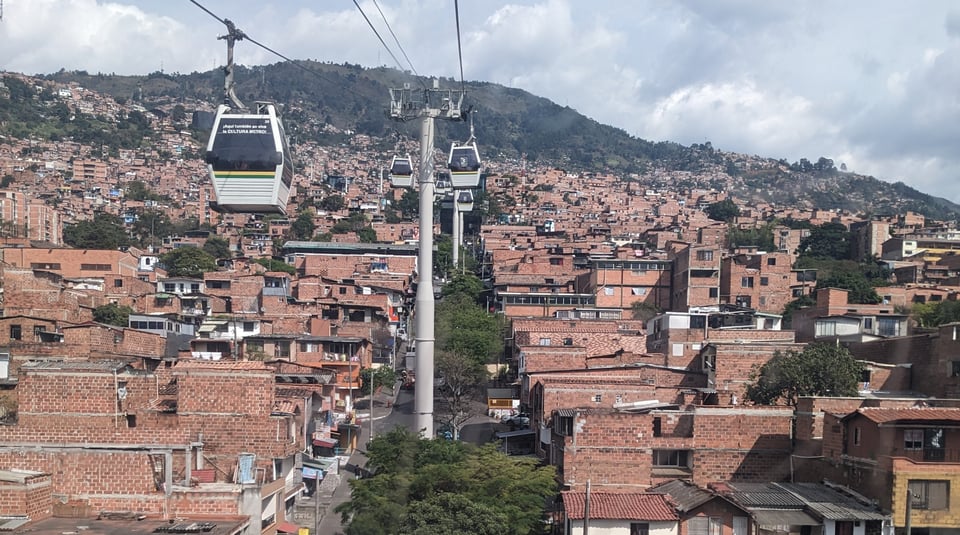City-building for the poor and dancing alone

Okay, so I haven’t been keeping up with my promise of a weekly email. Maybe weekly is too much? Maybe it’s good as an aspirational goal?
If, in my absence, you’ve been craving thoughtful newsletters, check out the missives from my smart, funny, and inquisitive friend Eric Fidler, who I got to see (along with a handful of other beautiful, smart, funny and inquisitive friends) on a quick work trip to DC earlier this month.
💁
The other trip I took lately was a vacation. We spent little over two weeks in Colombia in late March, visiting Bogotá, Salento, Medellín, Cartagena, and the area around Tayrona National Park. I even got to meet up with a high school classmate I hadn’t seen since 2003. (If you’re thinking of visiting Colombia, hit me up if you’d like recommendations.)

Medellín was a highlight of the trip: it’s lush, it’s lively, it’s got a complex history. What stuck out to me most is how Catholic liberation theology is plainly visible in the city’s infrastructure. Successive mayors have (albeit, to say the least, not always consistently) prioritized projects that primarily benefit the city’s poorest residents, particularly after rural migrants starting moving to Medellín in the mid-20th century and built unsanctioned settlements that crawled up the city’s hillsides. The aerial cable car system, which connects these neighborhoods to the Medellin Metro, is perhaps the best, but by no means the only, example of city-building to serve the poorest first.
🇨🇴
➔ Lots of city-building is of course designed not to prioritize the poorest first, but to instead serve a city’s big-business interests. Case in point: Boston’s Big Dig, which built a highway tunnel to the airport and beautified downtown by moving an expressway underground. It was intended to be a softer, kinder type of highway project after a generation of smash-and-build projects that tore through cities. Nowadays, the idea of spending that money on a downtown highway, as opposed to other, more sustainable city-center transportation projects, seems (one hopes) increasingly archaic. As the project that defined my childhood experience of Boston recedes into history, WGBH commissioned a recent podcast that walks through how the mega-project happened, from political alliances to technical challenges to catastrophic failures to the mixed feelings about its legacy that settled in its wake.
➔ In listening to The Big Dig, I discovered that Ian Coss, the show’s host and producer, had previously created a podcast on a very different subject: marriage and divorce. Upon deciding to get married, Ian interviewed his extended family, almost all of whom have gotten divorced, about their previous marriages. As a newly-married person myself, I found the portraits of love lost and found, and the lessons each person took from their relationships, to be particularly worthwhile.
As part of the podcast, Coss wrote and performed a song at the end of each episode. It’s a clever and impactful way to translate each story and the feelings it evoked in the listener into a new format, and to show that love songs (and regret songs) can take all sorts of forms.
➔ One song that’s been in my head lately came out two years ago, but has only recently made its way onto my playlist. It’s not a love song, but it is a song about a relationship. “Slow Song” by The Knocks, with vocals by Dragonette and a video starring Aquaria. Pay close attention; the song is a bop but the melancholy beat reveals cruelty in the lyrics.
The video reminded me of one of my favorite things that I used to do occasionally on the subway in New York: headphones in, alone but within the fold of the city, feeling a deep, complex, but undescribed emotion. You’re in your own music video, and you start to dance all alone.
Have a great week.
